The Assam Tea Garden is a lush haven of greenery, renowned for producing some of the finest tea in the world. Nestled in the serene valleys of Assam, these gardens are not just a treat to the senses but also a cornerstone of India’s tea industry. Home to sprawling estates and hardworking tea workers, the Assam Tea Garden embodies the spirit of nature and tradition coming together to create magic in every cup.
Exploring the Beauty of Assam Tea Gardens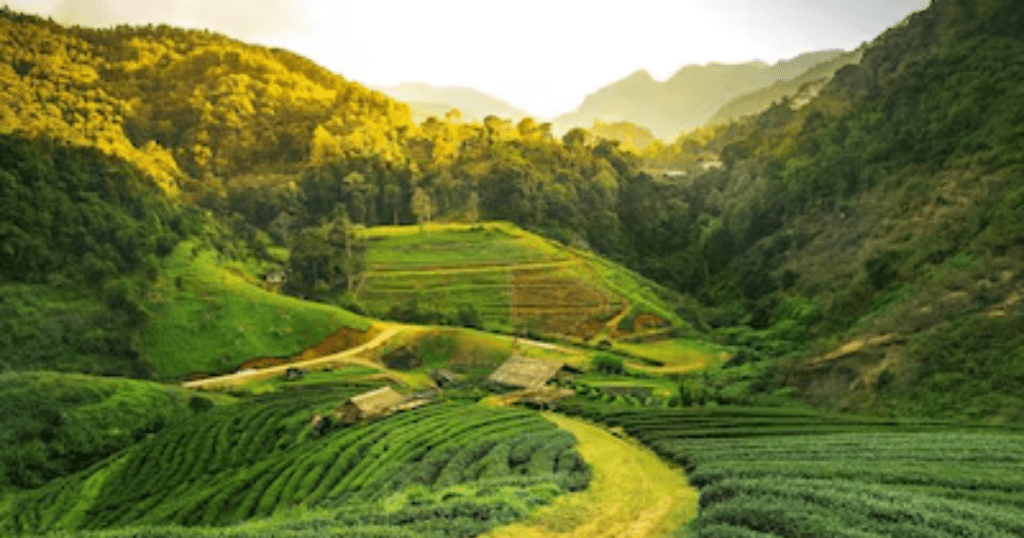
A visit to an Assam Tea Garden is a journey through scenic landscapes adorned with neatly pruned tea bushes that stretch as far as the eye can see. The gardens, thriving under Assam’s humid and misty climate, offer breathtaking views, making them a popular destination for tourists and tea connoisseurs alike. Many tea gardens also have heritage bungalows where visitors can immerse themselves in the history and culture of tea production.
Significance of Assam Tea Gardens
The Assam Tea Garden is the lifeline of the state’s economy and a globally recognized symbol of Indian tea. Assam’s black tea, with its robust flavour and rich aroma, owes its excellence to these meticulously managed gardens. Besides contributing to the local economy, the tea gardens preserve biodiversity and serve as a livelihood for thousands of workers, primarily women.
Why Visit an Assam Tea Garden?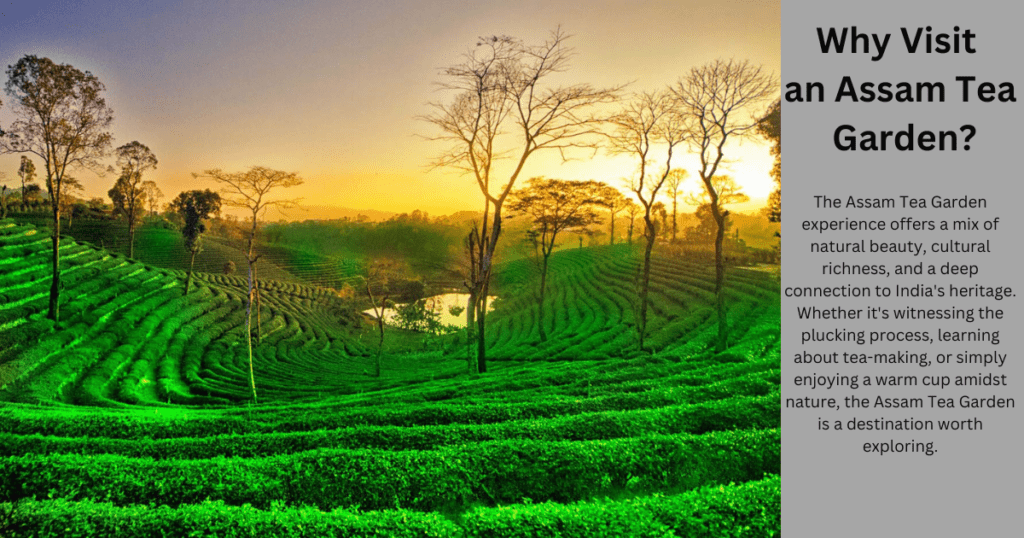
The Assam Tea Garden experience offers a mix of natural beauty, cultural richness, and a deep connection to India’s heritage. Whether it’s witnessing the plucking process, learning about tea-making, or simply enjoying a warm cup amidst nature, the Assam Tea Garden is a destination worth exploring.
List of Tea Gardens:
1. Mancotta Tea Estate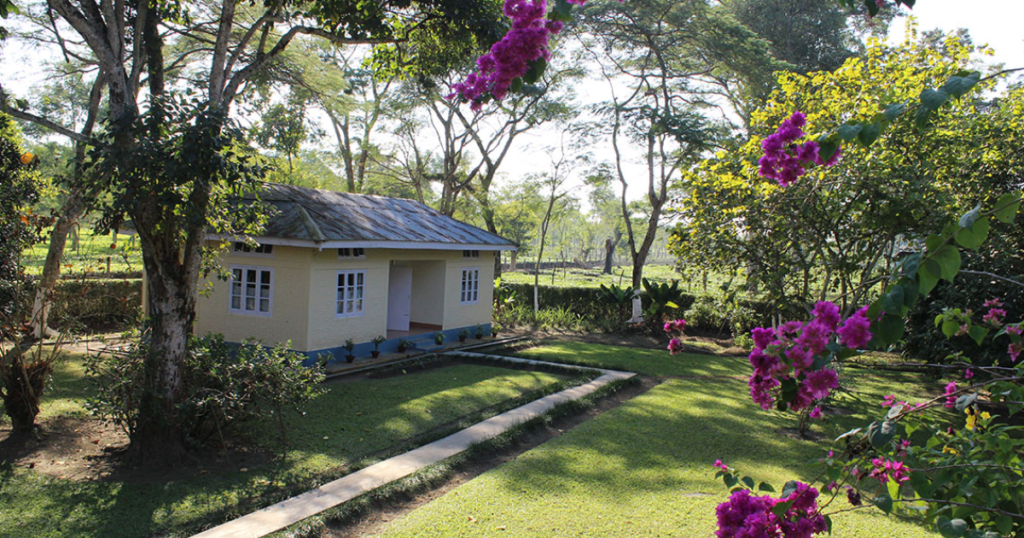
Located near Dibrugarh, Mancotta Tea Estate is among the most iconic tea gardens in Assam. The estate is famed for its aromatic CTC (Crush, Tear, Curl) tea, a variety that has gained immense popularity for its robust flavor. Visitors can experience traditional tea plucking, learn about the tea production process, and enjoy the serene atmosphere.
- Unique Feature: It offers tea tourism experiences, including heritage bungalows for stay.
- Highlight: Scenic cycling trails amid the tea bushes.
2. Nahorani Tea Estate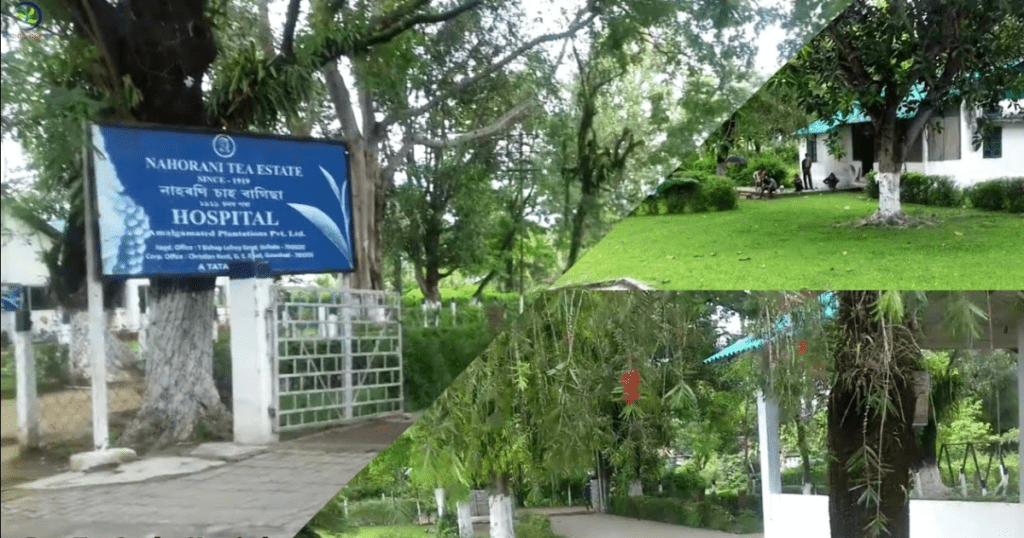
Nestled in Golaghat, the Nahorani Tea Estate is one of Assam’s oldest and most well-maintained plantations. Spread over thousands of acres, this garden produces both orthodox and CTC teas. Its long-standing reputation for premium-quality tea has made it a cornerstone of Assam’s tea industry.
- Unique Feature: Offers tea-tasting sessions for tourists.
- Highlight: Picturesque surroundings and a rich history dating back to the British era.
3. Halmari Tea Estate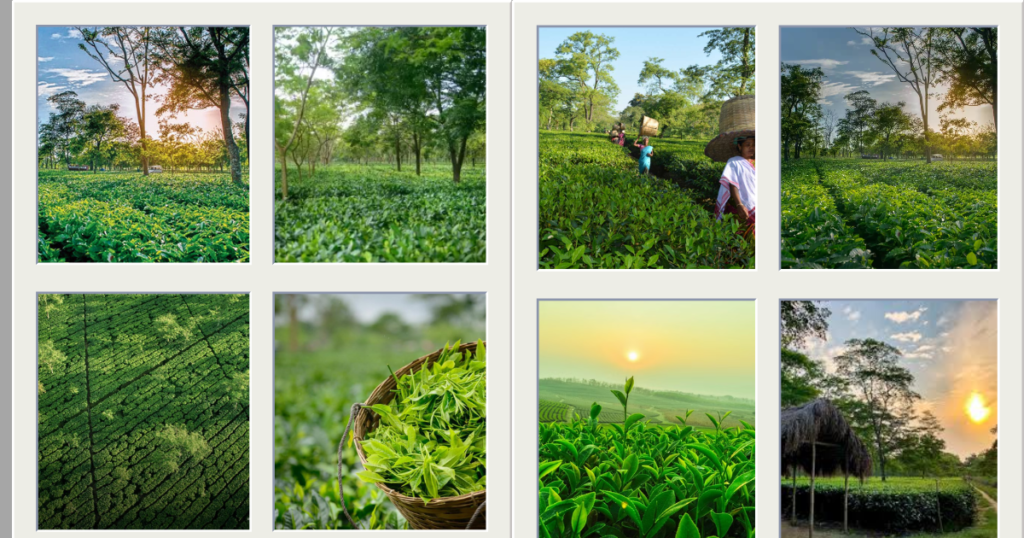
Renowned as a producer of award-winning Assam tea, Halmari Tea Estate in Dibrugarh is a symbol of quality and luxury. The estate specializes in both orthodox teas and CTC blends, exported worldwide.
- Unique Feature: Known for crafting some of the finest loose-leaf teas.
- Highlight: A well-equipped visitor center that explains the nuances of tea production.
4. Monabarie Tea Estate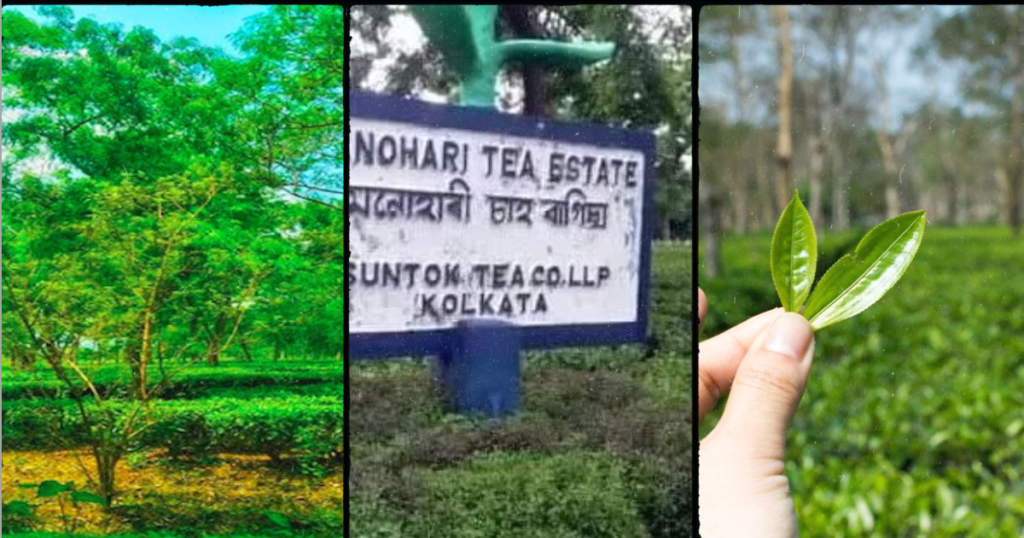
As the largest tea estate in Asia, Monabarie in Biswanath Chariali is an epitome of grandeur and efficiency. The estate is owned by McLeod Russel India Limited and is famed for its high-output yet quality-driven operations.
- Unique Feature: Known for its vast stretches of impeccably maintained tea bushes.
- Highlight: Walking trails allow visitors to explore the enormity of the estate.
5. Tinsukia Tea Estate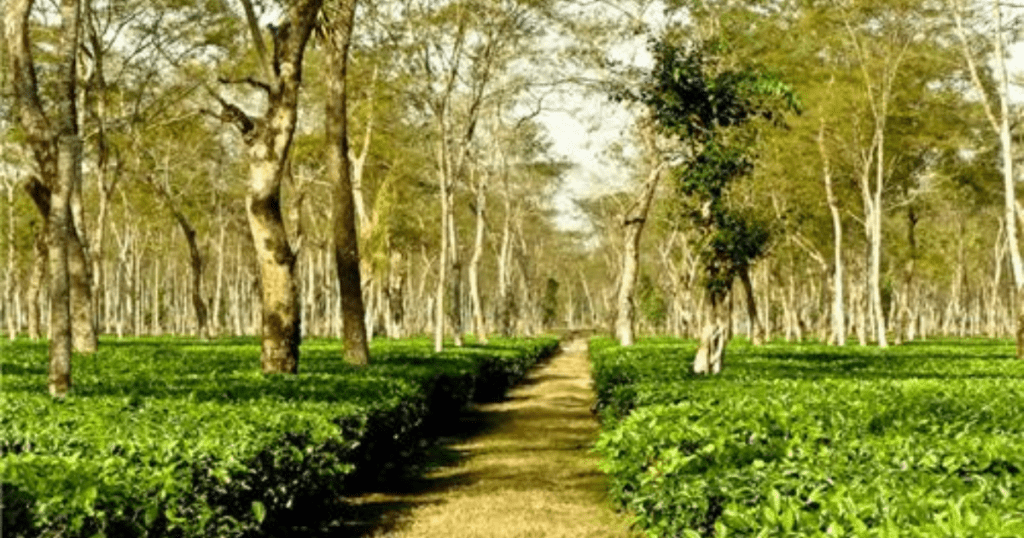
This estate lies in the heart of the tea-growing district of Tinsukia. The lush greenery and the production of premium Assam tea make it a popular destination for tea enthusiasts.
- Unique Feature: Hosts interactive sessions with tea experts.
- Highlight: Close proximity to other tourist attractions like Dibru-Saikhowa National Park.
6. Jorhat Tea Estates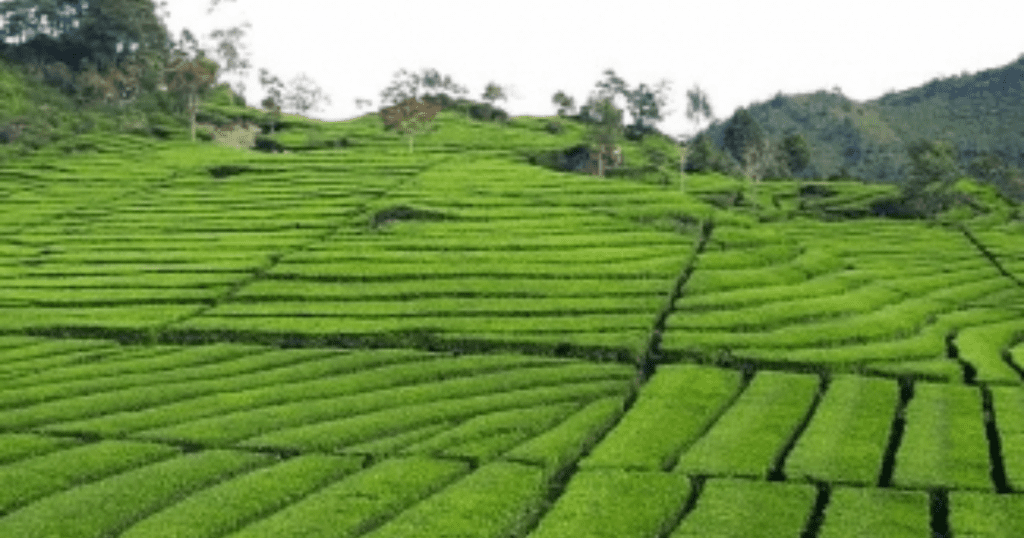
Jorhat, often referred to as the “Tea Capital of Assam,” is home to numerous estates like Cinnamora Tea Estate, Toklai Tea Estate, and others. These estates are renowned for their high-quality orthodox teas and have played a significant role in Assam’s tea heritage.
- Unique Feature: Houses the Toklai Tea Research Institute, one of the world’s oldest tea research centers.
- Highlight: Offers educational tours to understand the scientific aspects of tea cultivation.
7. Addabarie Tea Estate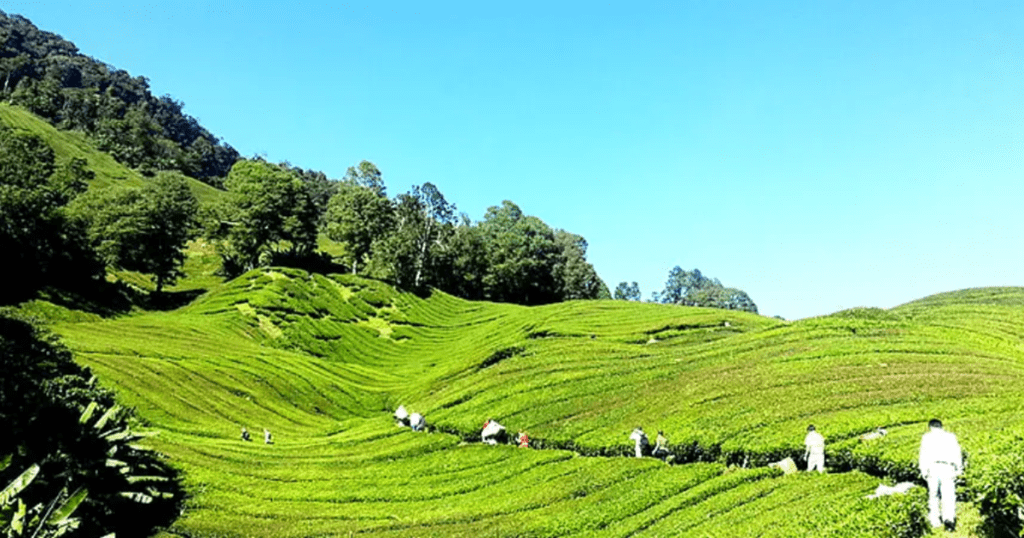
Managed by the Williamson Tea Company, Addabarie Tea Estate in Sonitpur is known for its heritage and picturesque surroundings. The estate is one of the oldest in Assam, with tea fields that stretch endlessly over the landscape.
- Unique Feature: Luxurious tea tourism packages.
- Highlight: Visitors can stay in colonial-era bungalows.
8. Khongea Tea Estate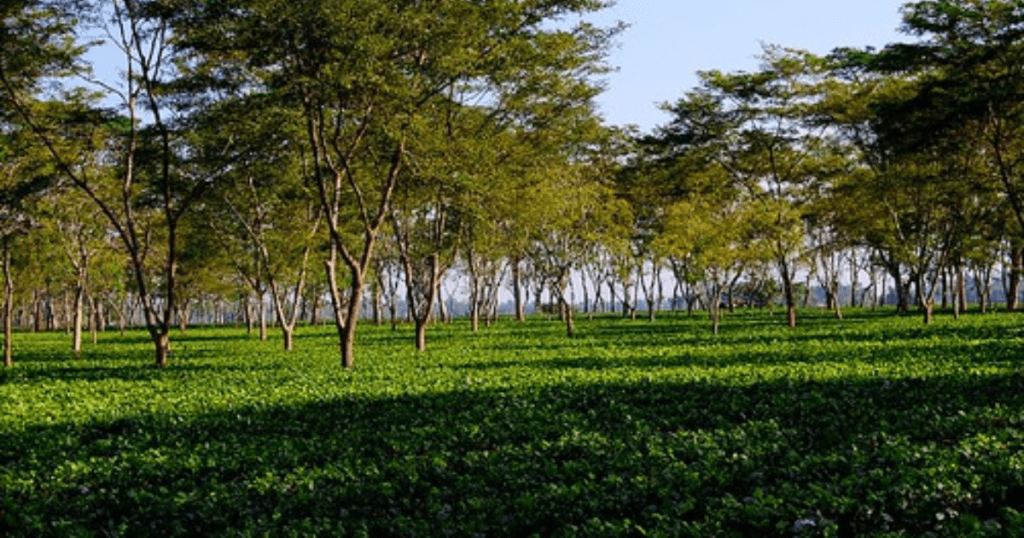
Located in Golaghat district, Khongea Tea Estate specializes in producing premium-quality teas that have a global demand. The estate combines modern processing techniques with traditional methods, ensuring every cup of tea is exceptional.
- Unique Feature: Eco-friendly tea cultivation practices.
- Highlight: Offers insights into sustainable tea farming.
9. Sapoi Tea Estate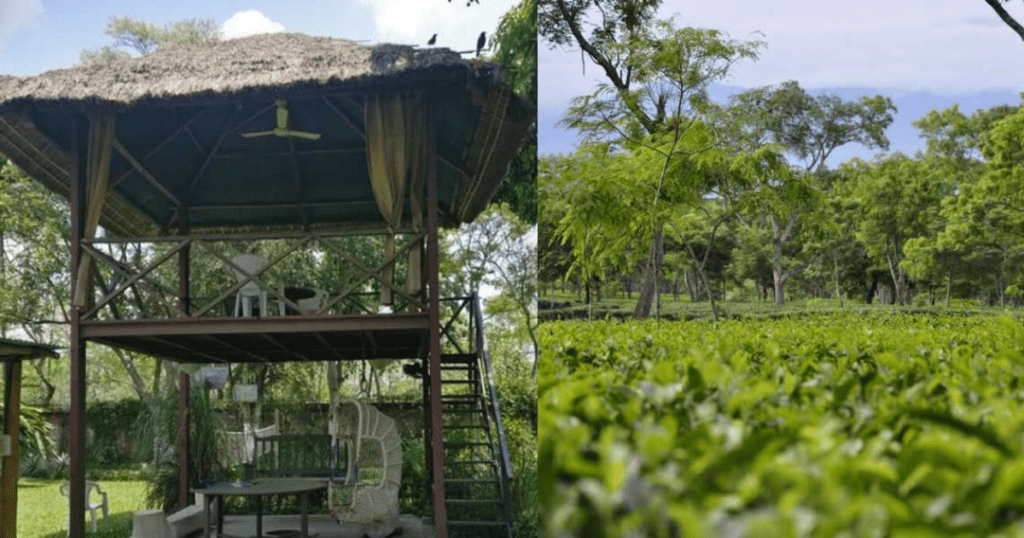
Sapoi Tea Estate in Tezpur is renowned for its organic teas. This family-owned estate has gained popularity for its environmentally conscious approach to tea farming.
- Unique Feature: Organic and pesticide-free teas.
- Highlight: Engages visitors in hands-on tea plucking activities.
10. Bokakhat Tea Estate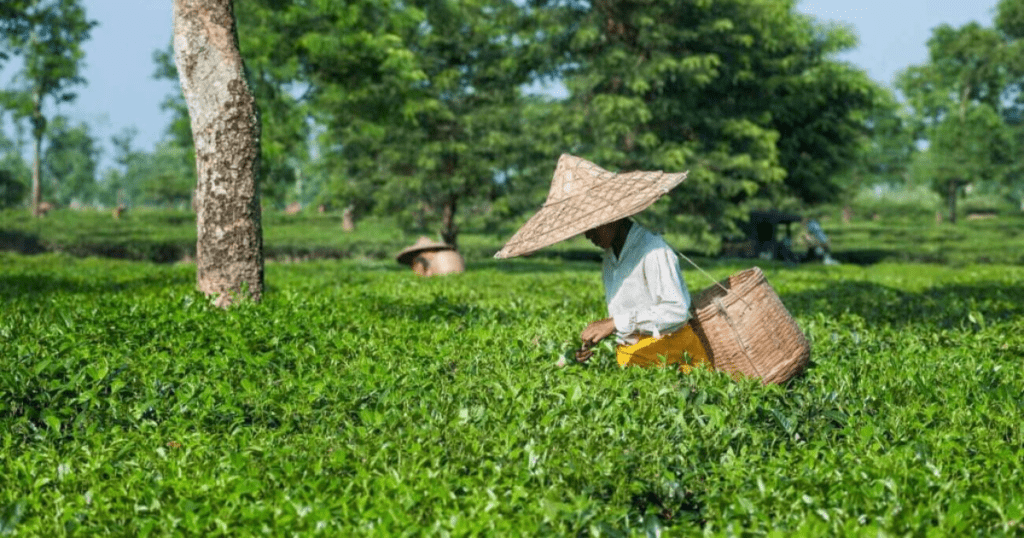
Close to Kaziranga National Park, Bokakhat Tea Estate is a perfect blend of scenic beauty and premium tea production. The estate’s proximity to a UNESCO World Heritage Site adds to its appeal.
- Unique Feature: Combines wildlife tourism with tea tourism.
- Highlight: Offers guided tours of the tea-making process.
Tea Benefits and Side Effects
Benefits of Tea
Tea, especially green, black, and herbal varieties, is packed with health benefits, making it one of the most consumed beverages worldwide.
- Rich in Antioxidants: Tea, particularly green tea, contains high levels of antioxidants like catechins, which help fight free radicals in the body, reducing oxidative stress and preventing cell damage.
- Boosts Metabolism: Studies suggest that tea, particularly green tea, may boost metabolism and aid in weight loss. The caffeine and catechins in tea enhance fat-burning processes, helping with weight management.
- Heart Health: Regular tea consumption has been linked to improved heart health. Black tea, in particular, is rich in flavonoids, which help improve blood vessel function and reduce the risk of heart disease.
- Improves Hydration: Contrary to popular belief, tea can help keep you hydrated. Herbal teas like chamomile and peppermint also offer soothing and calming effects, promoting better hydration and relaxation.
- Mental Alertness: The caffeine in tea, though less than coffee, can enhance mental alertness and concentration, providing a gentle energy boost without the jitters.
Side Effects of Tea
While tea has numerous benefits, excessive consumption may lead to some side effects.
- Caffeine Sensitivity: Overconsumption of caffeinated tea can lead to insomnia, jitteriness, or increased heart rate, especially in sensitive individuals. It is best to limit intake to avoid these effects.
- Stomach Irritation: Drinking tea on an empty stomach can cause acidity or digestive discomfort due to its tannin content, which can irritate the stomach lining.
- Iron Absorption: Tea, particularly black tea, can hinder the absorption of non-heme iron from plant-based foods. It’s advisable to avoid tea during or immediately after meals if you’re prone to iron deficiency.
- Tooth Discoloration: Regular tea consumption can lead to staining of teeth due to tannins. Proper oral hygiene can help mitigate this effect.
FAQ
1.Which is the No 1 tea Estate in Assam?
The No. 1 tea estate in Assam is Manohari Tea Estate, renowned for producing the world’s most expensive tea, Manohari Gold, known for its exquisite flavor, aroma, and premium quality.
2. Which is the richest tea estate in Assam?
The costliest tea in Assam is Manohari Gold Tea, which has set records for its high auction prices. In 2021, it sold for ₹99,999 per kilogram at the Guwahati Tea Auction Centre. Known for its exquisite golden tips, exceptional aroma, and luxurious flavor, Manohari Gold is produced by the Manohari Tea Estate in Dibrugarh, Assam.
4. Which is the largest tea estate in Assam?
The Monabarie Tea Estate in Assam is the largest tea estate in Asia, spanning 1,158 hectares. Located in Biswanath Chariali, it is renowned for its vast production and premium quality tea.
5. Where is nahorhabi tea estate?
Nahorhabi Tea Estate is located in Jorhat district, Assam. Renowned for its premium tea production, it lies amidst lush greenery and is a significant contributor to Assam’s tea heritage.
6. Which is the first tea estate in Jorhat?
The Cinnamara Tea Estate, established in 1850 by Maniram Dewan, is the first tea estate in Jorhat. It holds historical significance as one of Assam’s earliest tea plantations.
7. What is the name of Tinsukia Tea Estate?
The Tinsukia Tea Estate is also known as the Moran Tea Estate, located in Tinsukia district, Assam. It is renowned for producing high-quality Assam tea and contributing significantly to the tea industry.